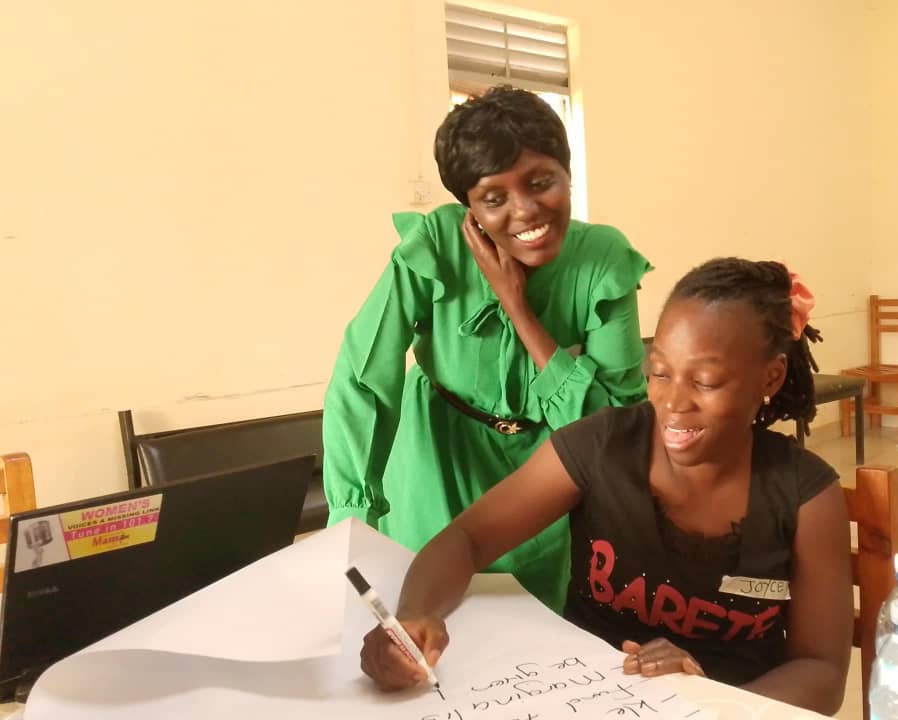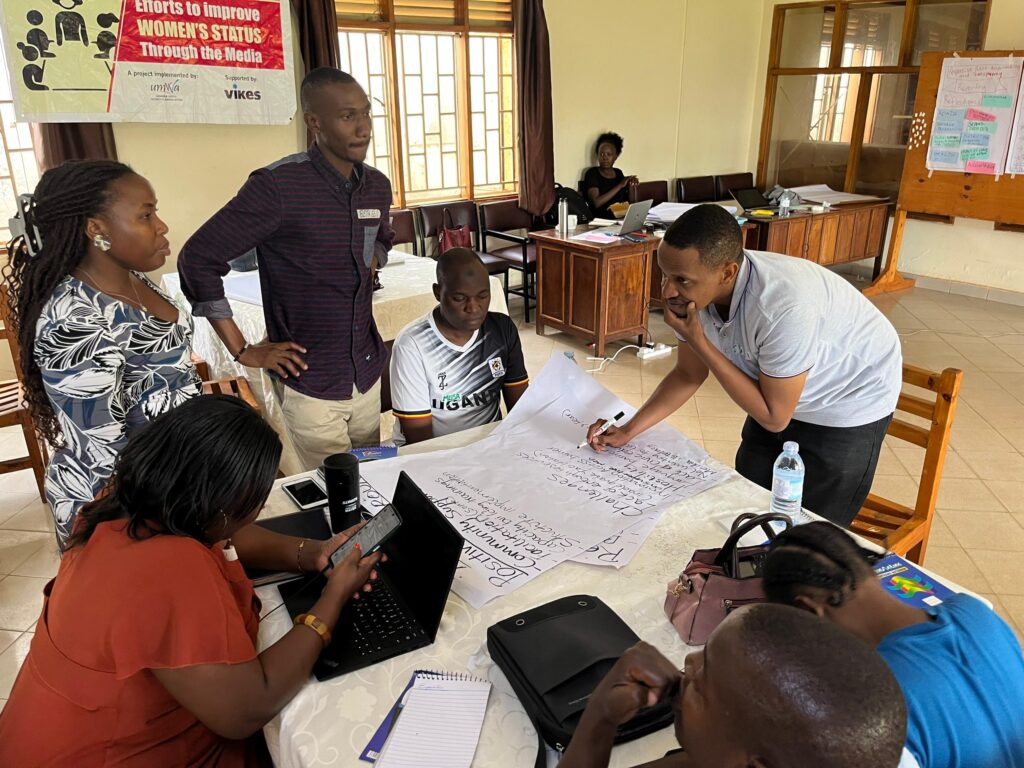
 Mama FM
Mama FM

 Mama FM
Mama FM
7 November 2025, 4:21 pm

By Byamukama Alozious & Mosh Ddamba
A year-long initiative by the Uganda Media Women’s Association (UMWA), in partnership with Finnish Foundation for Media and Development-Vikes, has been transforming public affairs reporting across Uganda, supporting journalists both in Kampala and the northern regions. The project focused on responsive, accountability-driven journalism, equipping reporters with skills to investigate pressing community concerns, follow up on public service failures, and influence change.
Catherine Apalat, Programs Officer at UMWA, explained that the project began with an assessment to identify the training needs of journalists on responsive public affairs reporting. The project also conducted on-site media trainings to radio and TV stations such as Radio Pacis, Apac FM, Radio Wa, Speak FM, Tiger FM, Buwama TV, and Gugudde TV among others. These visits specifically assessed female journalists’ safety and also strategies to mainstream gender in the respective media housess. Inaddition to ensuring that women journalists operate safely and equitably in thier media houses and in the feild.
In this responsive public accountability training, 10 female journalists received grants for investigative reporting, five from Kampala and five from the northern regions. Additionally, 15 female journalists were granted support to cover elections reporting, which is also part of the project. These journalists are still producing stories and are being mentored by experienced journalists, including Hope Marafunga, Catherine Ageno, and Carol Beyanga.
The results of the training are already evident in several impactful stories. Joyce Adokorach, a reporter, recounted her work on John Onili Bridge. The bridge, a vital public thoroughfare, had been the site of fatal accidents. “Last year, two crashes occurred here. One involved a colleague who needed a week to recover, and another was a motorcycle accident the rider died instantly. I wrote about it so that the authorities would act before another tragedy occurred,” she explained. Joyce’s reporting prompted the local council leader, to escalate the concern to division leaders and the mayor. “Leaders responded promptly, committing to repair the bridge,” Joyce said, reflecting on how the training taught her to recognise that seemingly small issues can have significant public impact.
Agnes Agillo, a journalist from Lira, reported on corruption within the Oyam District Service Commission, where job applicants were required to pay bribes for positions they never received. “We received a tip during an editorial meeting and immediately went to the ground. Some of the money was refunded, arrests were made, and we continue to follow up to ensure justice prevails,” she said. Agnes credited the training for encouraging journalists to tackle issues they might have previously overlooked.
Zam Nakityo, an online multimedia Journalist with Streaming Asylum acknowedged that the trainings have helped her to report and follow up stories in depth and with a gender lense.
Other reporters used their skills to address public service failures. One journalist investigated a school renovation where an engineer had performed shoddy work after receiving a kickback. Reporting on the issue ensured the engineer was recalled and forced to redo the work properly. “The training highlighted the importance of accountability and following up on public projects to ensure communities get what they pay for,” the journalist explained.
Environmental reporting also gained traction. Charles Katabalwa of Radio Sapientia shared how his personal experience as a small-scale farmer led him to investigate deforestation and illegal charcoal trade. “I saw my crops fail due to extreme heat and realised that deforestation was affecting livelihoods. My reporting revealed traders bribing officials to transport charcoal and gaps in the permitting system. Authorities must hold everyone accountable, or these problems will continue,” he said. Charles also advocated for household tree planting and accessible cooking gas to reduce pressure on forests.
Despite these successes, challenges remain. Accessing authority sources can be slow, some officials resist providing information, and journalists face threats or intimidation. Reporting from remote areas is difficult, especially during floods or poor road conditions. Catherine Apalat stressed the importance of adequate grant support, noting that larger grants enable journalists to conduct deeper investigative work and follow up more effectively.
Desire Alimokan , a journalist with Radio Pacis- Gulu said the whole project shaped her story telling , from sources to writing and angling before airing. She adds that she can now identify public interest stories in her community
Yet the impact is undeniable. Bridges are being repaired, corruption exposed, shoddy public works corrected, and environmental awareness increased. Journalists have become agents of change, transforming reporting into tangible community improvements.
Joyce Adokorach summarised the impact of the project: “When we write about these concerns, communities feel heard. Leaders act. Lives are saved. That is the power of journalism.”